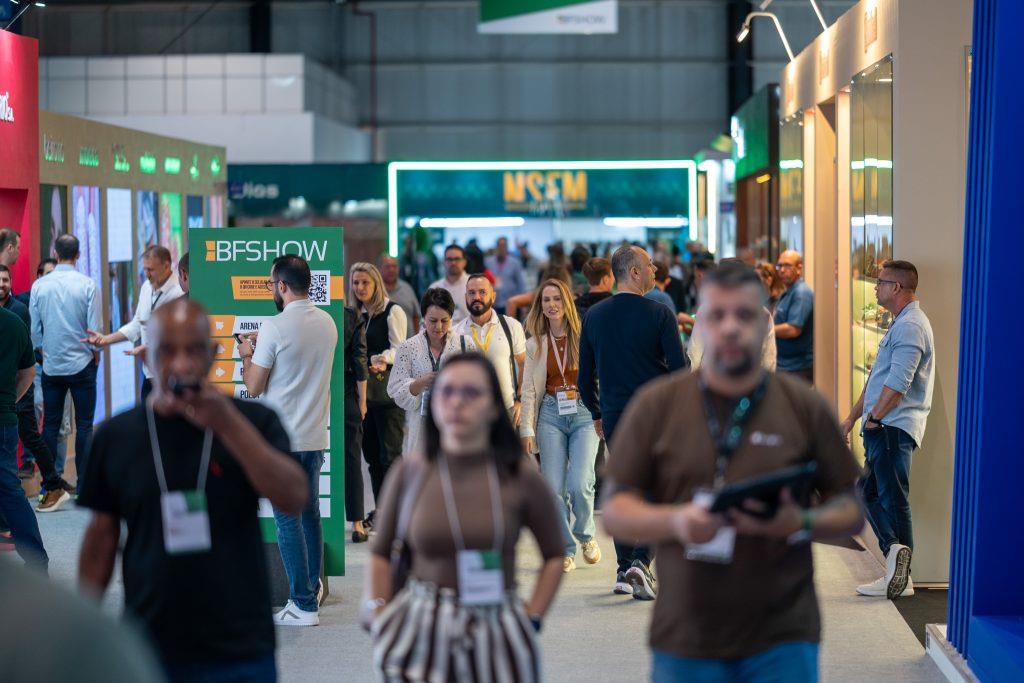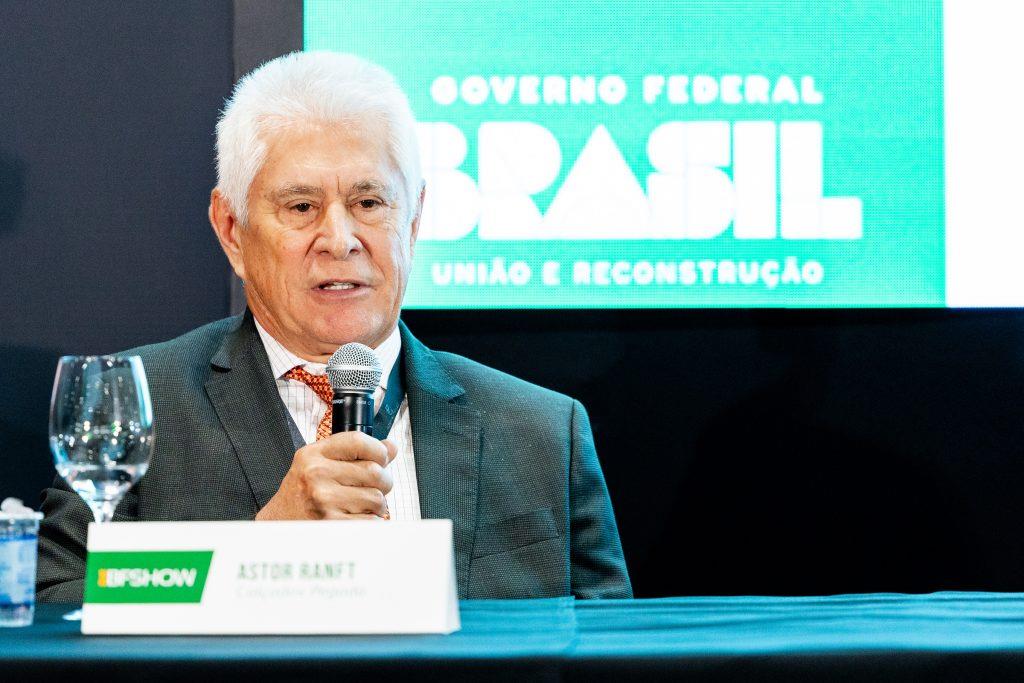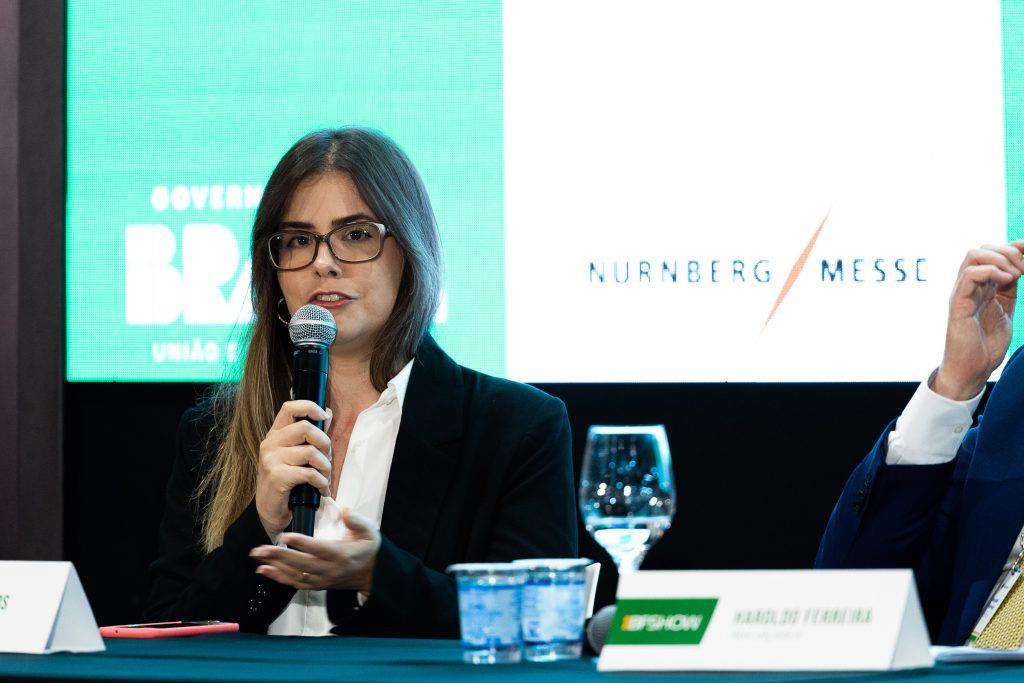
Brazil Footwear Industry Reacts Despite US Tariffs
The percentage will depend on whether the tariff on Brazilian footwear in the US is suspended or not. In August this year, the sector began paying an additional 40% tariff to export its products to the U.S., on top of the existing 10% duty. This brought the total burden to 50%.

BFSHOW began on Monday (10) at the Anhembi District in São Paulo
“However, if the additional tariff is suspended by the turn of the year-a date we have always been working toward with the federal government, and it is necessary that this position be reversed in November or at the latest December-we can reverse this drop in exports,” said Abicalçados CEO Haroldo Ferreira to journalists.
The industry is working with this timeframe because in January it begins production of the new private-label shoe collection-those products that carry the buyer's brand and represent the highest demand Brazilian companies have in the U.S. So far, the industry has offered discounts to U.S. clients in an attempt to maintain the market until the tariff situation is reversed, but sustaining this in the long term is difficult, according to industry leaders.
These discounts have been reflected in this year's export performance. In the first ten months, Brazil shipped 87.3 million pairs of shoes, generating USD 819 million-a 1% drop in value, despite a 7.5% increase in volume.“Companies, in order not to lose their clients or face order cancellations, are offering discounts, which results in a lower average price and reduced profitability,” Ferreira explained.
Thus, despite the hefty tariffs, the U.S. remains the main market for Brazilian footwear abroad in terms of value. From January to October, the U.S. purchased 8.9 million shoes from Brazil, up 7.4% from the same period, generating USD 187.6 million-a growth lower than the increase in volume, 4.3%, due to the discounts.
If the tariff on Brazilian shoes is not lifted, the domestic industry is expected to direct 91% of its production to the local market in 2026, leaving only 9% for export. Normally, the country ships 15% of its footwear abroad. However, manufacturers are already moving toward new buyers, with exports this year showing increased sales to South America. Overall, the year is expected to close with a 0.2% to 3.1% increase in the number of shoes exported.

Ranft, from Calçados Pegada, was not affected by the U.S. tariffs
“Here at BFShow, there has been a lot of visits from importers, and that's a very positive sign,” said Ferreira, commenting on the prospect of gaining new markets.“Business is happening, and we believe that the loss experienced in the U.S. market can be redirected to other destinations whose buyers are visiting us and purchasing our products,” he added.
Expanding sales to Arab countries, among other non-traditional markets, is one of the possibilities. Ferreira noted that a recent meeting took place with the Brazilian Trade and Investment Promotion Agency (ApexBrasil) and Middle Eastern embassies.“It's a very niche market-so much so that we have national manufacturers with excellent business in the Arab market-but it's a market that should be further explored,” he said.

Santos, from ApexBrasil: Arabs are a focus of Brazilian Footwear program
Calçados Pegada is one of the Brazilian companies that sells to Arab countries such as the United Arab Emirates, Saudi Arabia, Kuwait, and Jordan, among others. According to the company's president, Astor Ranft, U.S. clients usually order private-label shoes, and since the company only offers its own brand, with only a small portion sold to the U.S., it was not affected by the tariff hike. The company expects to grow in the Arab market, Ranft said.
Abicalçados, together with ApexBrasil, spearheads the Brazilian Footwear export program, and the program manager at ApexBrasil, Clara dos Santos, told journalists that the UAE is one of the target markets for the next phase of the program, along with Saudi Arabia. The agreement between ApexBrasil and Abicalçados for executing Brazilian Footwear is renewed every two years, with the next cycle starting in early 2026. The specific actions are yet to be defined, according to Santos.
Read more:
Arab buyers strike deals at Brazil footwear show
Translated by Guilherme Miranda
SuppliedSuppliedSuppliedSuppliedThe post Brazil footwear industry reacts despite US tariffs appeared first on ANBA News Agency.
.jpg)
Legal Disclaimer:
MENAFN provides the
information “as is” without warranty of any kind. We do not accept
any responsibility or liability for the accuracy, content, images,
videos, licenses, completeness, legality, or reliability of the information
contained in this article. If you have any complaints or copyright
issues related to this article, kindly contact the provider above.
















Comments
No comment